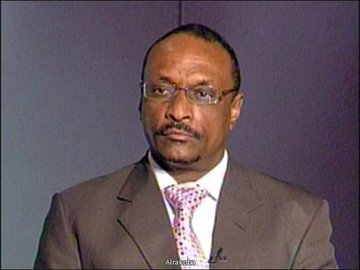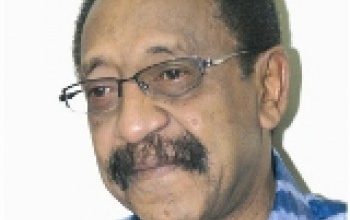A Tragic End: Confessions of the Rapid Support Forces Leader

By Al-Muslimi Al-Kabbashi
The speech delivered by the leader of the Rapid Support Forces, Mohamed Hamdan Dagalo, known as Hemedti, on the evening of Wednesday, October 9th, was notably different from his previous addresses to the public since the outbreak of the war on April 15, 2023. While his earlier speeches carried political overtones, goals, and messages with clear intent, this latest speech seemed devoid of any political strategy or coherence, as if the guiding mind behind his statements had abandoned him. The address lacked any consistent ideas or logical progression from start to finish.
One of the contradictions in his speech was his claim to have “rejected the Framework Agreement signed on December 5, 2022” and warning its creators that it would “ignite war.” However, despite this supposed rejection—unknown until now—he not only signed the agreement but also defended it and gathered support for it, even protecting its backers.
Although Hemedti initially believed the Framework Agreement would lead to war, he still allowed the situation to escalate, ultimately participating in the conflict without questioning whose interests were being served. His actions indicate that he engaged in a war he did not believe in, driven by external influences. According to his speech, the Americans, Europeans, members of the Quad and Trilateral mechanisms, and the former UN envoy to Sudan, Volker Perthes, all played roles in pushing him toward the conflict.
For the first time, Hemedti accused these international partners of inciting the war and later abandoning him. He reproached them, asking: “Why did you push us into war if you were willing to tolerate the return of the Islamic Movement and the National Congress Party? Why did you destroy our country only to retreat from supporting us in eradicating the Islamic Movement?”
It appears that Hemedti is increasingly losing hope for continued backing from these allies, evident in his sharp criticism of countries that once stood by him and anticipated his victory. This shift reflects a profound sense of disillusionment and signals a potential break from most, if not all, of his former supporters.
Hemedti may also be bewildered by the wave of condemnation from international organizations and Western media regarding the Rapid Support Forces’ conduct during the war. He seems to believe that these nations pushed him into conflict through the Framework Agreement, despite his warnings. His misunderstanding of international politics is apparent; he failed to grasp that while these powers might back a quick and decisive war to reshape the political landscape to their advantage, they are less inclined to continue supporting a protracted conflict with high human costs.
In effect, Hemedti condemned his own political choices by admitting he knowingly engaged in a war he had foreseen. Furthermore, he exposed the Framework Agreement’s architects and backers, first by revealing the agreement’s role in provoking war and then by accusing them of withdrawing their support. His sharp rebuke might also be an attempt to pressure them into continuing their backing for the war.
Hemedti’s speech was permeated with overt racism. He criticized Ibrahim Jaber, a member of the Sovereignty Council, not for political disagreements but for disregarding their tribal kinship. According to Hemedti, Jaber failed to honor their shared blood ties and did not appreciate the services Hemedti had rendered to him. This reveals a deeply ingrained tribal mindset.
Interestingly, Jaber may now feel relieved, as Hemedti’s speech exonerated him from previous suspicions of divided loyalty—accusations that he prioritized tribal ties over allegiance to the army. Hemedti also attributed the war’s orchestration to the Shaigiya tribe, unwittingly praising their ability to rally the entire nation behind the army’s cause. Similarly, Hemedti credited the Islamic Movement for supporting the army from the outset, acknowledging its role at the forefront of the battle.
If Hemedti’s claims are accepted—that the Islamic Movement played a decisive role in the army’s achievements—this implies not only that the movement deserves to govern Sudan but also that it enjoys significant popular support. Such recognition could compel international and regional powers that initially backed the Framework Agreement to reconsider their stance and engage with the Islamic Movement, given the movement’s undeniable presence in Sudanese politics.
Hemedti’s statements also align him with the army and the forces opposing the Framework Agreement, such as the Islamic Movement and national factions. This alignment fractures his previous coalition with the Forces of Freedom and Change, which had denied the Framework Agreement’s role in triggering the war. His newfound acknowledgment effectively binds him to those who have always criticized the agreement, logically requiring him to abandon both the agreement and the war.
How can one logically persist in a political project and a war, knowing that the agreement that triggered the conflict was flawed from the outset? Such contradictions reflect Hemedti’s lack of political experience, which he has previously admitted.
Hemedti’s speech also strained relations with Egypt. His accusations against Egypt—whether true or not—unintentionally shifted public perception in Sudan, transforming complaints of Egyptian neglect into appreciation for its role in the war. Hemedti claimed that Egyptian forces were actively supporting the Sudanese army, even racing to strike military targets ahead of the Sudanese air force. Regardless of the accuracy of these claims, they have helped dispel doubts and suspicions about Egypt’s intentions, fostering a sense of unity between the two nations, especially at the popular level.
In an attempt to deflect accusations of atrocities committed by the Rapid Support Forces, including killings, looting, and sexual violence, Hemedti adopted a tone of denial, apology, and anxiety. However, such justifications are unlikely to resonate, particularly with the Sudanese people, given the horrific events that have unfolded—such as the massacres in villages like Wad al-Noora, Qoz al-Naqa, and al-Andab in Gezira State, as well as atrocities in Jalangi and East Dinder in Sennar State.
Feeling the weight of impending defeat, Hemedti announced “Plan B” in his speech, calling on his supporters who had fled the battlefield to return immediately and vowing to mobilize one million fighters for the next phase of the conflict.
Analyzing Hemedti’s speech through a purely political lens proves challenging. A psychological approach may be more fitting, given the body language, vocal tone, and disjointed content, all of which suggest suppressed anger and deep resentment toward those who pushed him into war. His speech reflects the emotional release of a leader grappling with the realization of a tragic end to his military adventure. While the speech contains hints of defeat, Hemedti also seems determined to press forward along an uncertain path.



